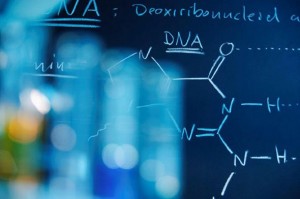When it comes to Bioscience, all human life is studied. This degree not only offers numerous career opportunities but provides a knowledge into life in all of its forms; from molecules and cells to organisms and the environment. The Bioscience degree provided at Farmingdale State College is design to produced versatile graduates, who can be prepared for a wide range of positions in the field of biology, and professional programs in the life and health sciences. The Broad content of having a Bioscience degree can lead to numerous careers. Bioscience graduates can be found working in a variety of sectors both related and unrelated to science, including the food industry, local and central government, environmental health, sports science the pharmaceutical industry and academic.
While in a Bioscience program, one can learn so much more than just regular science. You are given the opportunity to combine a strong foundation in the biological sciences and supporting subject with technical electives that enable one to acquire advanced preparation in one or more applications of Bioscience. In my own experience, I’ve learn the proper way to conduct a research, presentation, the ability to collect and critically analyze data along with practical expertise gained from lab. One also gains the ability to work as part of a team, manage your time effectively and use your initiative.
What jobs can you do? Well that depends on the areas of interest and specializations studies within the degree. Career options could include medicine, dentistry, veterinary medicine, allied healthcare professions, nursing, scientific research and analysis, environmental and conservation management, ecologist, toxicologist, microbiologist, forensic scientist or science/medical laboratory officer. The pharmaceutical and agrochemical industries also offer careers for Bioscience graduates in a variety of roles, including research and development, medical sales, and as clinical research associates conducting clinical trails. Teaching and lecturing, information science, science writing, publishing, and making wildlife programs or films are other possibilities. Let’s take a closer look at some of the career paths with sequences of technical electives that are recommended to provide the necessary training to pursue these careers.
Bioinformatics computer-based mapping and comparison of genomic and other biologically-derived data, with applications such as predicting the function of gene products and developing pharmacogenomic treatments of disease): job titles include Scientific Curator, Gene Analyst, Protein Analyst, Structural Analyst, Molecular Modeler, Biostatistician, Pharmacogenetician. Recommended Technical Electives: Computer Concepts/Problem Solving, Foundations of Computer Programming I & II, UNIX Operating System, Database, Perl Programming.
Biopharmaceutical pharmaceutical, nutraceutical, and cosmeceutical production, ranging from fermentation and raw material extraction to processing and finishing): job titles include Compounding Supervisor, Process Development Associate, Production Planning Scheduler, Quality Assurance Auditor, Quality Control Analyst, Regulatory Affairs Specialist. Recommended Technical Electives: Management Theory & Practices, Contemporary Business Communications, Occupational Safety, Industrial Hygiene, Biopharmaceutical Regulation, Validation & Regulatory Affairs.
Bioscience Laboratory Research & Analysis life sciences research support, biotechnology research & development, FDA regulated industry production): job titles include Bioscience Laboratory Associate, Bioscience Laboratory Technician, Food Quality Laboratory Technician, Microbiologist, Development Technician, Quality Control Receiving Inspector. Recommended Technical Electives: Pre-calculus Modeling for the Life & Social Sciences, Organic Chemistry I & II, Biochemistry, Lab Management & Informatics, Laboratory Research/Education.
Forensic DNA Technology processing and analyzing DNA forensic evidence to produce validated results for use in judicial proceedings): job titles include DNA Analyst, Forensic Processor, Forensic Analyst, Forensic Quality Assurance Manager. Recommended Technical Electives: Criminal Investigation, Criminalistics, Criminal Law, Criminal Procedure Law, Bioethics, Lab Management & Informatics, Forensic Molecular Biology.
Graduate/Professional School Admissions: for those students specially seeking
entry into graduate programs in the life sciences or into professional programs in the health sciences, a sequence of Technical Electives can be chosen to earn the academic credentials necessary to meet admissions requirements of such programs. Recommended Technical Electives: Pre-Calculus with Applications, Calculus I with Applications, College Physics I & II, Organic Chemistry I & II, Biochemistry, Lab Management & Informatics.
The more closely related to Bioscience a job is, the more specialized knowledge and qualifications are required. The less specialized a job is, the less specific knowledge and qualifications are needed and the more necessary are the interpersonal skill; team working and communication. There are two main career routes which the majority of graduates choose. Some choose to enter employment directly, while others continue their education. Nearly all of Biosciences graduates go on to further study. Some will do research at PhD level while others do courses that allow them to specialize, for example in some sort of medical school. In my case I’ll be trying to further my education in a Physician Assistant program. In my opinion this is a very rewarding degree with many options, there’s something for everyone no matter the situation.
If you decide to obtain a Bioscience degree- well done!
